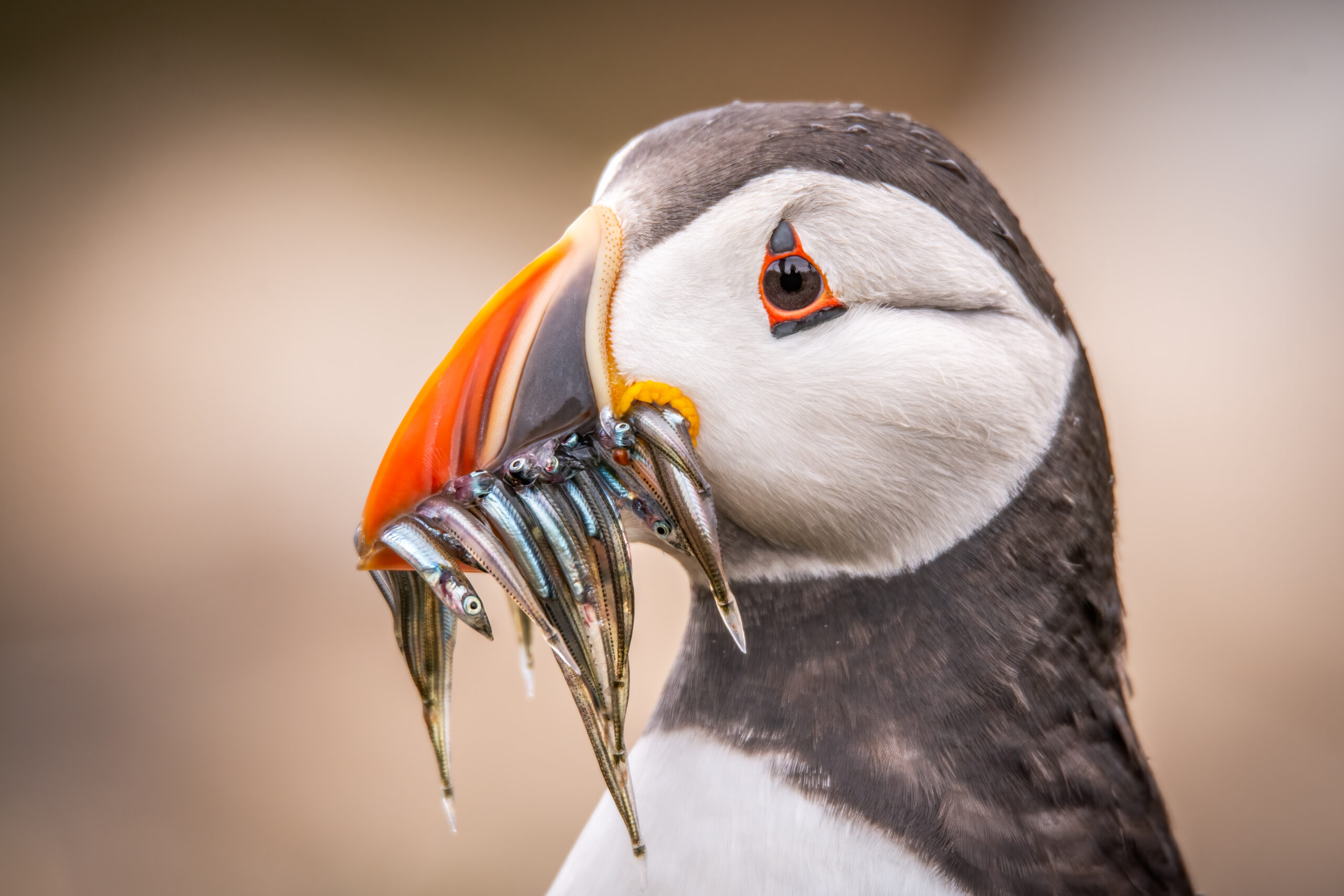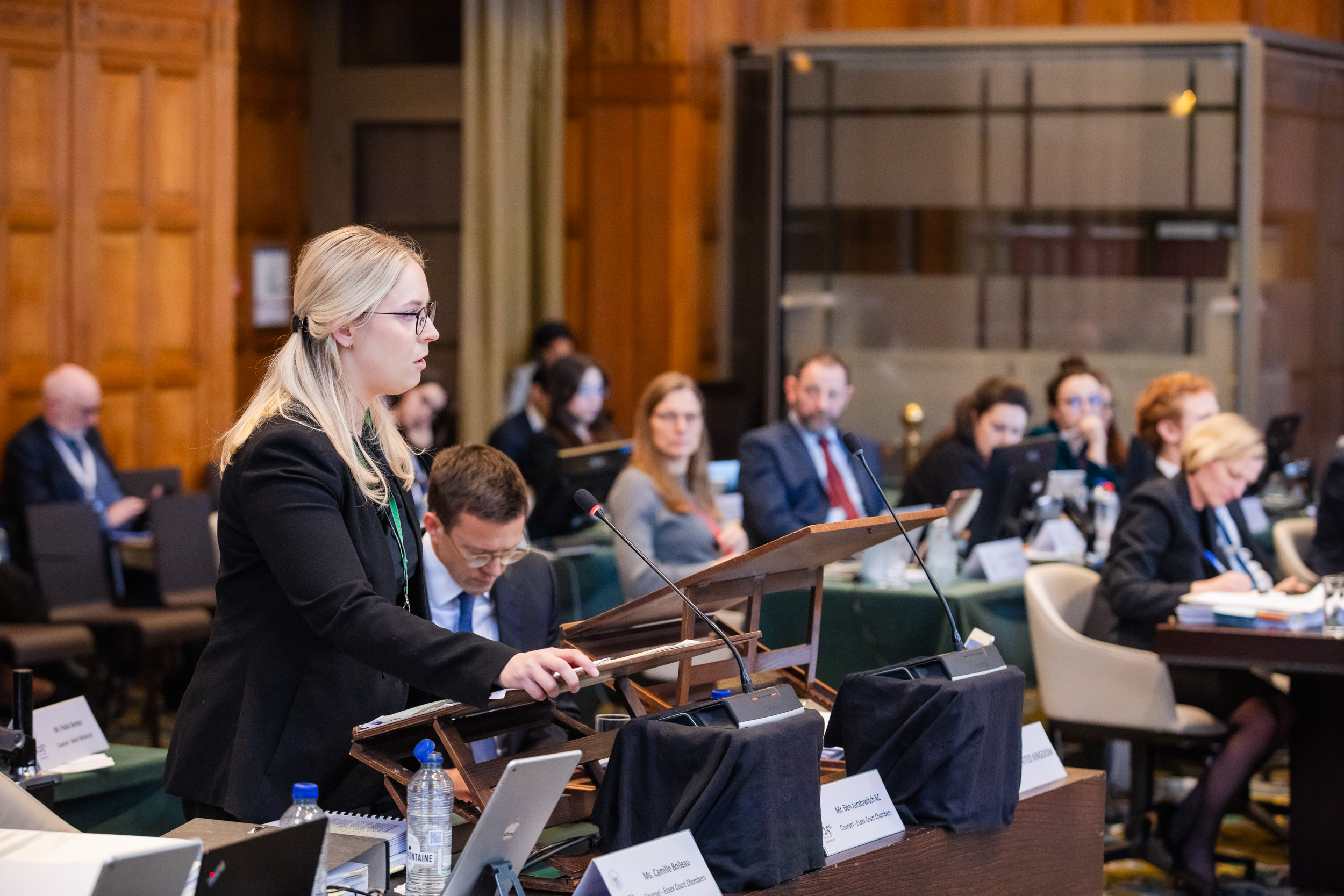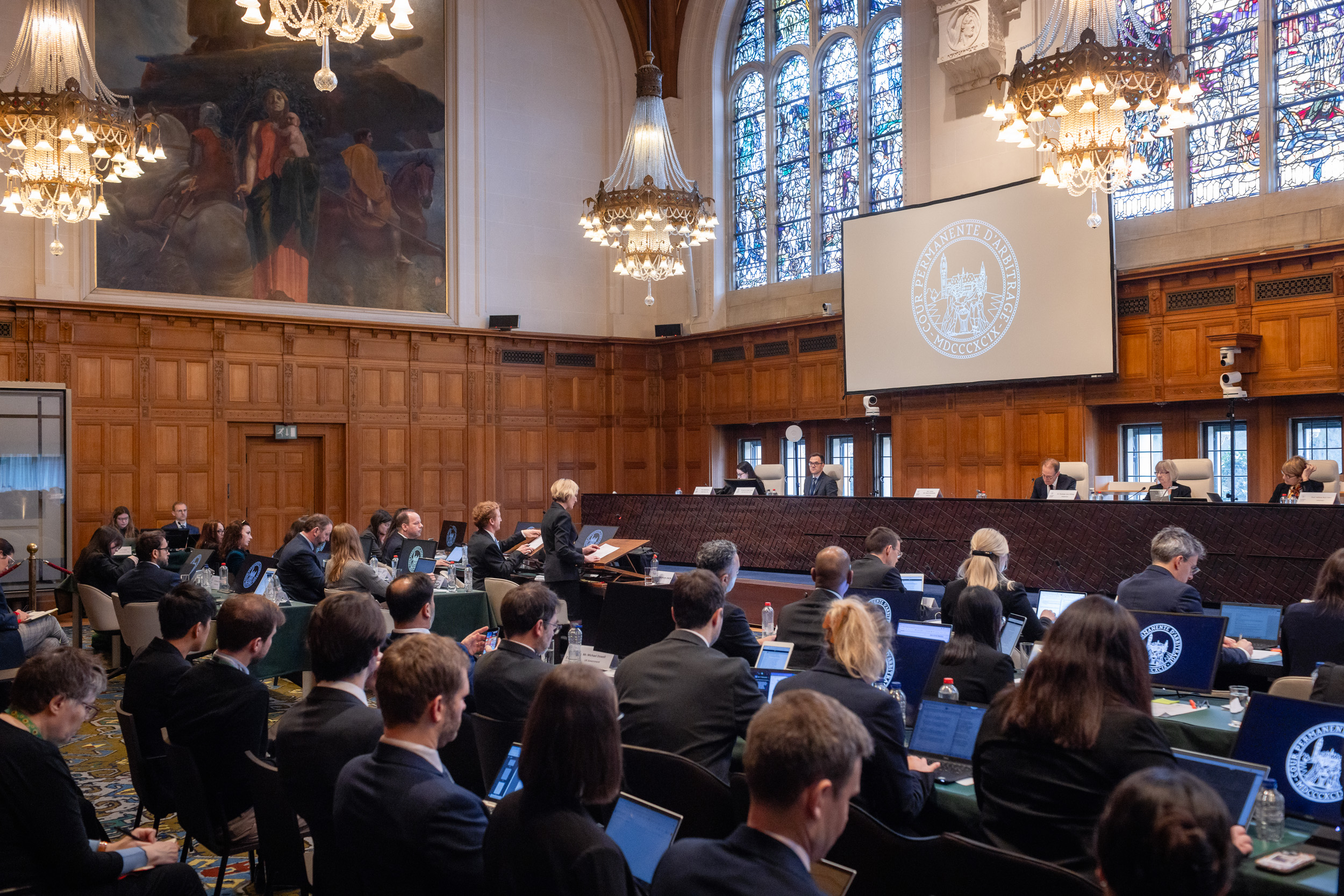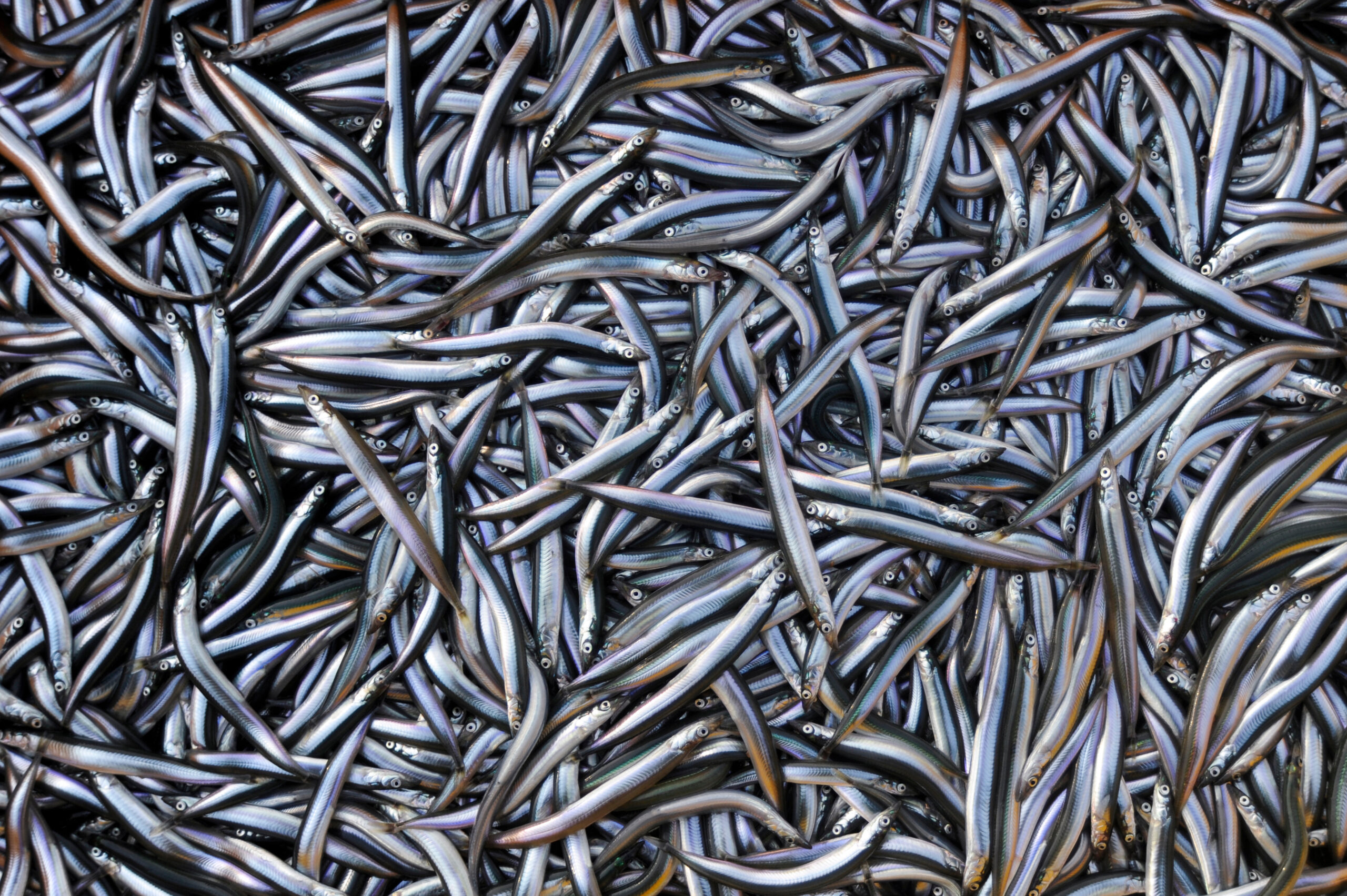The sandeel Arbitration Tribunal has published its final ruling, which relates to decisions taken in March 2024 by the UK and Scottish Governments to close North Sea Waters to sandeel fishing. While the UK has succeeded in the majority of its arguments, the ruling has left several parties claiming victory.
The dispute over sandeel fishing in the North Sea marks the first time the UK and EU had been in court since Brexit in 2020, with the outcome of the case having huge significance for seabird populations along the east coast and for UK-EU trade relations. The dispute centred on whether the UK’s right to restrict trawlers for conservation reasons unnecessarily restricts agreed EU fishing rights.
The report from the Permanent Court of Arbitration indicates that the UK succeeded in most of its arguments, and that the UK successfully demonstrated that the measures taken to close English and Scottish waters were based on the best available science and had sufficient regard to the principle of non-discrimination – the two key points that the EU based its argument against the closure.
The Tribunal also found that the Scottish measures had sufficient regard to the principle of proportionality. However, the Tribunal found that during the decision-making process to close English waters to sandeel fishing, the UK did not have sufficient regard to the principle of proportionality.
In summary:
- The decision to close Scottish waters was fully upheld.
- The Tribunal identified an error in the decision to close English waters.
- The UK government have stated that the ruling does not mean the UK is legally obliged to reverse the closure of English waters.
- The UK government has said it will undertake a process in good faith to bring the UK into compliance.
The European Commission has welcomed the final ruling by the Arbitration Tribunal, which they say agreed with the EU’s interpretation of several key issues, including that:
- The Arbitration Tribunal affirmed the importance of having regard to the principle of applying proportionate measures for the conservation and management of fisheries resources.
- The Arbitration Tribunal found that the UK prohibition of fishing sandeel in English waters of the North Sea did not comply with the proportionality principle under the TCA. Consequently, the prohibition breached the UK’s obligation to grant EU vessels full access to those waters to fish sandeel.
Ms. Camille Boileau, Counsel for the United Kingdom, at the Permanent Court of Arbitration, Janaury 2025.
All parties claim success
The final ruling has left all sides claiming victory, with the RSPB’s Chief Executive, Beccy Speight, saying: “We are absolutely delighted the panel has found the ecological case for the closure of industrial sandeel fishing is sound. Also, that UK governments are within their rights to restrict sandeel fishing in UK waters to protect this valuable food source for declining seabirds.”
Meanwhile, Danish fishing representatives are quoted as saying that “……[we] are extremely pleased that the arbitration court in The Hague has ruled that the UK’s closure of sandeel fishing is in breach of the Brexit agreement.
“The Danish Fisheries Association and the Danish Pelagic Producers’ Organization are now calling on politicians in the EU and the UK to put on their work gloves so that it becomes possible to fish sandeel in British waters as soon as possible.
I hope this decision means that we will be allowed to fish sandeel in British waters again as soon as possible.”
A European Commission spokesperson said the EU executive was still “analysing” the court’s decision. In a statement welcoming the ruling, the Commission highlighted that the UK “shall inform the EU within 30 days of the measures it will take” to comply.
A UK Government spokesperson said: “We welcome the clarity provided by this decision, and we will undertake a process in good faith to bring the UK into compliance on the specific issues raised by the Tribunal. The ruling does not mean the UK is legally obliged to reverse the closure of English waters, and the decision to close Scottish waters was fully upheld.”
Ban on sandeel fishing
In early 2024 the UK and Scottish Governments introduced a ban on sandeel fishing in Scottish waters and English waters of the North Sea in a move conservationists hailed as critical for saving the UK’s globally important seabird colonies.
Sandeels form the base of the North Sea food chain and are eaten by seabirds, harbour porpoises, cod and haddock. They are not caught for human consumption but are made into fishmeal and oil, for animal feed.
In April 2024, the EU, supported Denmark – the country with by far the biggest sandeel fishing fleet – launched dispute proceedings to challenge the closures. In October 2024, the EU referred the challenge to an arbitration tribunal under the post-Brexit Trade and Cooperation Agreement (TCA) to rule on the dispute with. The tribunal met at the Permanent Court of Arbitration in The Hague from 28 to 30 January 2025.
Scientific advice behind the ban
The dispute centred on whether the UK’s right to restrict trawlers for conservation reasons unnecessarily restricts agreed EU fishing rights.
In its submissions to the court, the EU argued the geographical scope of the ban is not justified by the scientific modelling on stock levels, or the “economic and social impacts” on Danish fishing communities.
In a response published by the court, the UK defended the scientific advice behind the ban, adding that the EU has failed to point out “any superior model” available at the time. In a post-hearing submission, the EU contended that Article 496(2) TCA obliges Parties to base fisheries management measures on the “best available scientific advice”, but this obligation applies to the Party deciding on a measure rather than to the Party challenging that measure – in other words, the UK rather than the EU.
It added that the UK was within its rights to bring in the ban, highlighting that the trade agreement itself commits both sides to taking account of the impact of fishing on marine diversity.
The Permanent Court of Arbitration in session, January 2025.
Findings of the Tribunal
The report from the Arbitration Tribunal found that the UK successfully demonstrated that the measures taken to close English and Scottish waters were based on the best available science and had sufficient regard to the principle of non-discrimination. The Tribunal also found that the Scottish measures had sufficient regard to the principle of proportionality.
The Tribunal found that during the decision-making process to close English waters to sandeel fishing, the UK did not have sufficient regard to the principle of proportionality, specifically in relation to EU rights during the adjustment period – a requirement under the UK-EU Trade and Cooperation Agreement (TCA).
The government has said it will now undertake a process in good faith to bring the UK into compliance. The UK Government also said that there is no legal obligation for the UK to reverse the closures while the compliance process takes place, and the report does not indicate that compliance must require reversing the closures.
A UK government spokesperson said: “We remain committed to protecting our seabirds and the wider marine environment, in accordance with our commitments to the TCA and other international agreements.
Disputes and the use of resolution mechanisms are a normal part of a mature relationship with international partners. We will continue to act in the national interest as we work towards a strong and lasting partnership with our European neighbours.”
Reaction to the Arbitration Tribunal decision
News outlets in the EU and UK gave contrasting views on the ruling, with Agence France-Presse headlining with ‘EU wins post-Brexit fishing row with Britain’, contrasting with The Telegraph’s headline of ‘Britain defeats Brussels in fishing row to protect puffins’.
Tom Ash Marine Senior Policy Officer at Wildlife and Countryside Link, said: “The UK’s defence of the sandeel fishing closure is an important moment for marine conservation that the Government should be proud of. We welcome the tribunal’s decision, which demonstrates that the UK Government had conservation science on their side and can keep waters closed.
“Protecting sandeels is essential for the survival of puffins, kittiwakes and other iconic seabirds already in steep decline along with porpoises and whales. We welcome the UK’s commitment to science-led policy that puts the health of our seas first, and call on EU counterparts to match this ambition. The health of our shared seas depends on collaborative action that prioritises long-term sustainable ocean health over short-term industrial interests.”
The Scottish Government’s Cabinet Secretary for Rural Affairs, Land Reform and Islands, Mairi Gougeon, welcomed the decision, saying “This is an extremely positive ruling, especially with respect to the closure in Scottish waters where all claims have been successfully defended. As such, the prohibition of sandeel fishing in Scottish waters will remain in place.
“Protecting our marine ecosystem is vital to Scotland’s environment, and to the people and communities who rely on it. The ruling reaffirms the appropriateness of the actions we took last year to do just that.
“The prohibition of sandeel fishing in Scottish waters has the potential to provide long term sustainability and resilience to the marine ecosystem, as well as bringing about potential benefits to sandeel, seabirds, marine mammals and other fish species.
“This outcome, with respect to Scottish waters, reflects the robust, evidence-based and transparent public consultation and processes that the Scottish Government has in place.”
Ben Reynolds, executive director of green thinktank IEEP UK, said: “The decision of the tribunal is welcome news for the environment, and for the finding that there is no legal obligation to reverse the closures despite the procedural error being found in the English case. This is one of only a handful of issues where the UK has used its post-Brexit powers to go further than the EU on tightening up protection of the environment.”
Beccy Speight, RSPB Chief Executive, said: “This has been a great example of collaboration between the UK and Scottish governments, and all those in civil society across the UK and the EU that have campaigned long and hard for our threatened seabirds. We now expect the UK Government and the EU to move forward and make this closure permanent. Safeguarding sandeel stocks is a key part of the jigsaw that will help set our Puffins, Kittiwakes and the wider marine environment on the path to recovery.”
What happens next
The ruling states ‘that the prohibition of fishing for sandeel in English waters is inconsistent with the United Kingdom’s obligations under Article 496(1) of the Trade and Cooperation Agreement, read together with Article 494(3)(f) of the Trade and Cooperation Agreement, on the grounds that there was a failure to have regard to the principle of applying a proportionate measure.
In consequence of the ruling above, that the United Kingdom is in breach of its obligation to grant full access to its waters to fish sandeel in accordance with Article 2(1)(a) of Annex 38 to the Trade and Cooperation Agreement.
Accordingly, the Arbitration Tribunal rules that the United Kingdom is required to take the necessary measures to comply with the ruling of the Arbitration Tribunal…., in order to bring itself in compliance with the covered provisions.’
The European Commission has said that the UK is required to immediately comply with the final ruling and shall inform the EU within 30 days of the measures it will take.
The full ruling, final report, EU and UK submissions, alongside supplementary evidence can be found online at the Permanent Court of Arbitration.



